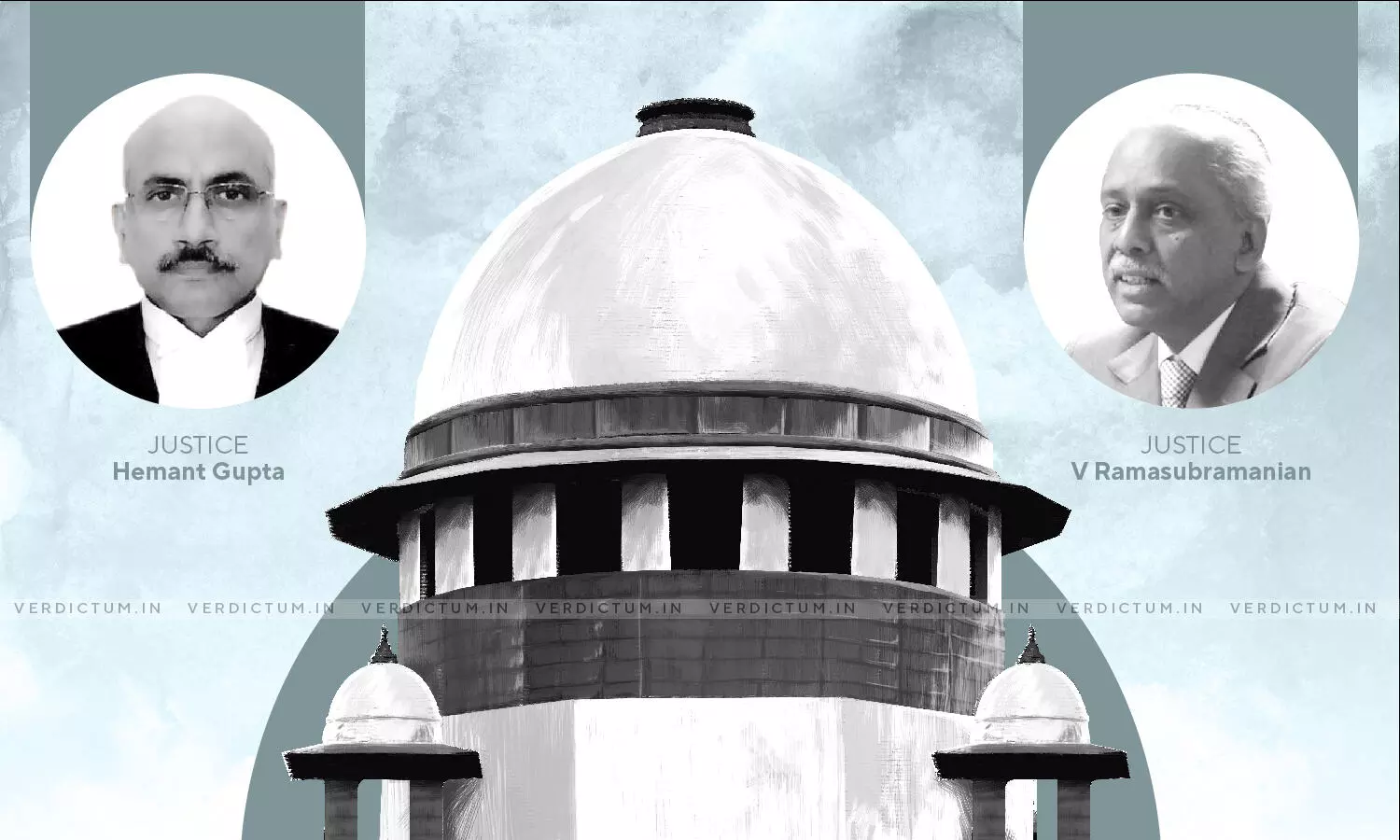
Candidates Indicating Preference To Particular Service In Uniformed Services To Be Kept Out For Other Services - SC
 |
|A two-judge bench of the Supreme Court comprising of Justice Hemant Gupta and Justice V. Ramasubramanian has observed that in an appeal before the highest Court, it was not possible for the Court to look into questions of fact especially so since the recruitment related to uniformed services, where physical fitness of the incumbents was of utmost importance.
Additionally, the Court held that candidates who had indicated a preference to a particular service could be kept out of consideration for appointment to other services because of the expression of their openness for appointment to any service, even at the time of submitting the application.
In this case, the Staff Selection Commission had invited applications for recruitment (i) of Constables (GD) in Central Armed Police Forces (CAPFs) such as ITBP, BSF, CISF, CRPF, and SSB; and (ii) of Rifleman (GD) in Assam Rifles. Initially, the number of posts sought to be filled up was notified as 39574, but the same was revised to 48802. The process of recruitment comprised of Physical Standards Test, Physical Efficiency Test, Written Examination, and Medical Examination.
The Notification was clear that the recruitment would be based upon reservations mentioned in the Appendix, statewise, and categorywise. The 48802 vacancies were thus distributed servicewise, statewise, reserved categorywise and domiciliary statuswise in respect of border districts and Naxal/Militancy affected areas. After the completion of the process of selection, the Staff Selection Commission published a Select List of candidates. Finding that their names did not find a place in the final Select List and contending that candidates who secured lesser marks than them were included in the Select List, filed a petition before the Gauhati High Court which was allowed by the Single Judge.
The Union of India and the Staff Selection Commission filed an intra-court appeal before the Division Bench which was dismissed. This impugned judgment was challenged before the Supreme Court.
Senior Counsel, Mr. Siddharth Dave represented the Respondents before the Apex Court.
The primary issues in this case were –
(i) Whether the rejection of the OBC certificate of a few candidates on the ground that they were not in the prescribed format and the consequent categorization of those candidates as general category candidates were correct.
(ii) Whether candidates who had indicated a preference to a particular service could be kept out of consideration for appointment to other services, despite these candidates having secured more marks than the selected candidates in those other services.
On the first issue, the Supreme Court observed that it was true that the power to issue caste certificates vested with the officers of the State Government and that there was no uniformity in this regard. Therefore, some leverage had to be given. However, the Court asserted that they did not know whether what was produced before us was the caste certificate actually produced by that Respondent.
According to the Court, if this was the certificate that he had actually enclosed to his application, there would be no occasion for the High Court to examine whether the objection related to the substance or mere form. Furthermore, the Court asserted that at that level, in an appeal before the highest Court, it was not possible for the Court to look into this question of fact. This was especially so since the recruitment related to uniformed services, where the physical fitness of the incumbents was of utmost importance. A period of more than 10 years had now passed from the date of Notification. Therefore, the Court opined that at this stage it was not possible to enter into disputed questions of fact and grant relief to those two Respondents.
On the second issue, according to the Court, the Respondents in these appeals indicated preference only to one service. Moreover, they did not secure more than or equal to the cutoff mark for that service in the category to which they belonged. The Court observed that it was true that candidates who secured lesser marks than these Respondents had been selected in other services, but it was because of the expression of their openness for appointment to any service, even at the time of submitting the application. The Court relied on the case of Union of India vs. M.V.V.S Murthy where a similar question had been adjudicated.
Therefore, the appeals were allowed and the impugned order of the Gauhati High Court was set aside.
Click here to read/download the Judgment